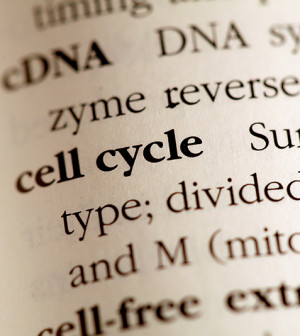- Double Mastectomy May Offer No Survival Benefit to Women With Breast Cancer
- Toxic Lead Found in Cinnamon Product, FDA Says
- Certain Abbott Blood Sugar Monitors May Give Incorrect Readings
- Athletes Can Expect High Ozone, Pollen Counts for Paris Olympics
- Fake Oxycontin Pills Widespread and Potentially Deadly: Report
- Shingles Vaccine Could Lower Dementia Risk
- Your Odds for Accidental Gun Death Rise Greatly in Certain States
- Kids From Poorer Families Less Likely to Survive Cancer
- Tough Workouts Won’t Trigger Cardiac Arrest in Folks With Long QT Syndrome
- At-Home Colon Cancer Test Can Save Lives
Gene Mutation May Make Food More Tempting


Some obese people have a genetic mutation that seems to ramp up the reward centers in their brains when they see food, researchers report.
Gaining a better understanding of how this mutation triggers feelings of pleasure and gratification at the sight of high-calorie foods like chocolate could help improve strategies designed to prevent overeating, the scientists suggested.
More than one-third of U.S. adults are obese. Obesity is typically caused by a combination of overeating, a lack of physical activity and genetics. The most common genetic cause of obesity is a mutation in the melanocortin 4 receptor (MC4R) gene, the British researchers explained.
In conducting their study, published July 30 in the Journal of Clinical Endocrinology & Metabolism, the scientists compared eight people who were obese and had the MC4R gene mutation with 10 people who were overweight or obese who did not have the gene mutation, and eight people who were a normal weight.
Using functional MRI scans, the study authors observed how pictures of tempting foods, such as chocolate cake, activated the reward centers of the participants’ brains. Their response to photos of appetizing foods was then compared to the effect of pictures of bland foods, such as rice or broccoli, and objects like staplers.
Surprisingly, participants who were the same age and weight had different responses to pictures of appetizing foods, the researchers found. The brain scans revealed that obese people with the genetic mutation and participants who were a normal weight had similar heightened activity in the reward centers of their brain. Meanwhile, the reward centers in the obese and overweight people who did not have the genetic mutation were underactive.
“The brain’s reward centers light up when people with the mutation and normal weight people viewed pictures of appetizing foods. But overweight people without the mutation did not have the same level of response,” lead researcher Dr. Agatha van der Klaauw, of the Wellcome Trust-MRC Institute of Metabolic Science at Addenbrooke’s Hospital in Cambridge, England, said in an Endocrine Society news release.
“For the first time, we are seeing that the MC4R pathway is involved in the brain’s response to food cues and its underactivity in some overweight people. Understanding this pathway may help in developing interventions to limit the overconsumption of highly palatable foods that can lead to weight gain,” she explained.
More information
The U.S. Centers for Disease Control and Prevention has more about eating to maintain a healthy weight.
Source: HealthDay
Copyright © 2024 HealthDay. All rights reserved.










